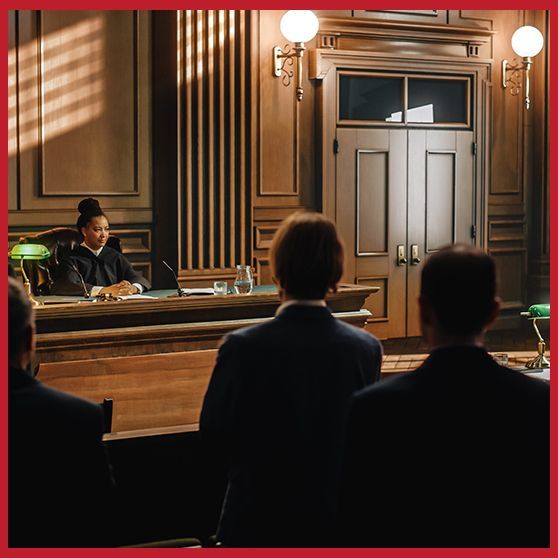Lawyer's Overview to Habeas Corpus: Protecting Your Freedom and Rights
Lawyer's Overview to Habeas Corpus: Protecting Your Freedom and Rights
Blog Article
Comprehending the Duty of a Post-Conviction Attorney in Seeking Justice After a Criminal Sentence
In the complex landscape of post-conviction legal procedures, the role of a post-conviction legal representative is critical in navigating the path to justice after a criminal sentence. Past the confines of a test, these lawful specialists participate in a complex technique targeted at discovering brand-new evidence, difficult lawful mistakes, and promoting for their clients' rights. The ins and outs of post-conviction work need a blend of lawful acumen, investigatory skills, and strategic assuming to unravel the intricacies of a case and go after avenues that might have been ignored or underexplored. As the search of justice expands beyond the confines of preliminary proceedings, the duty of a post-conviction legal representative becomes a sign of hope for those seeking to remedy injustices and reclaim their rights within the lawful system.
Post-Conviction Attorney's Investigatory Work
Post-conviction lawyers participate in precise investigative job to discover new proof, step-by-step mistakes, or misbehavior that could possibly result in rescinding a conviction. This investigatory phase is crucial in the post-conviction procedure as it intends to recognize any type of forgotten details or lawful mistakes that may have influenced the result of the initial test. Post-conviction lawyers explore situation files, witness testimonies, and legal documents with a fine-tooth comb, looking for any type of inconsistencies or irregularities that might be premises for appeal.
With extensive examination, post-conviction lawyers aim to drop light on potential injustices that may have occurred during the original trial. By looking at every facet of the legal procedures, post-conviction lawyers work relentlessly to uncover any type of elements that might have affected the verdict.
Crafting Appeals and Petitions
In the pursuit of justice after a conviction, experienced lawyers carefully craft allures and requests to present compelling debates for the reconsideration of lawful choices. Crafting appeals and applications calls for a deep understanding of the legal system, interest to information, and calculated reasoning. Post-conviction lawyers analyze test records, identify prospective errors or offenses of rights, and establish lawful disagreements to test the sentence or sentence.
When crafting an allure, legal representatives concentrate on highlighting lawful errors that may have affected the result of the instance. They research case legislation, statutes, and legal precedents to support their arguments. Requests, on the other hand, might include offering brand-new evidence that was not available throughout the trial or demonstrating adjustments in the legislation that call for an evaluation of the conviction.
Additionally, post-conviction lawyers must adhere to rigorous step-by-step policies and due dates when submitting charms and petitions. They must offer their arguments plainly and persuasively to persuade the court to grant alleviation to their customers. Through thorough crafting of appeals and applications, post-conviction lawyers strive to safeguard justice for people that have been wrongfully founded guilty or unfairly punished.

Seeking Post-Conviction Relief
Looking for relief after a sentence needs a strategic and attentive why not find out more method by knowledgeable lawyers. Post-conviction relief includes a variety of lawful devices developed to challenge the legitimacy of a conviction or sentence (oklahoma federal habeas corpus lawyers). These avenues consist of submitting motions for a new test, pursuing allures, seeking writs of habeas corpus, and providing freshly found proof. Post-conviction legal representatives play a vital function in navigating these intricate treatments, ensuring that all legal options are discovered to correct oppressions that may have taken place throughout the test or sentencing phase.
One common form of post-conviction relief is filing an application for post-conviction alleviation, normally based on claims of inefficient support of advice, prosecutorial transgression, freshly discovered evidence, or constitutional offenses. Experienced post-conviction legal representatives have the abilities and expertise required to recognize practical legal claims, carry out examinations, and existing compelling debates to protect alleviation for their clients.
Utilizing Forensic Proof
When challenging a conviction or sentence, the strategic utilization of forensic proof can be a powerful device in post-conviction lawful procedures. Forensic evidence includes a variety of clinical techniques utilized to investigate criminal activities and establish facts in court. Post-conviction legal representatives can leverage forensic proof to test the validity of convictions by offering brand-new scientific findings that were not available throughout the original test.

Involving in Sentence Modifications
Post-conviction attorneys may check out the possibility of sentence alterations as a legal method to resolve disproportionate or unfair sentences passed on in criminal cases. Sentence adjustments entail seeking adjustments to the terms of a defendant's sentence after a sentence has actually occurred. These adjustments can include lowering the length of a sentence, modifying the type of penalty imposed, or checking out different sentencing options.
Post-conviction lawyers can seek sentence adjustments with different legal systems, such as submitting activities for sentence decrease, appealing for caring release, or discussing plea deals for lowered sentences. They must meticulously assess the circumstances of the instance, examine the lawful premises for seeking a modification, and existing engaging arguments to the court sustaining the need for a modified sentence.
Taking part in sentence adjustments calls for an extensive understanding of criminal regulation, punishing standards, and the particular treatments entailed in seeking post-conviction alleviation. Post-conviction lawyers play an important role in supporting for fair and just end results by challenging sentences that are unduly harsh or do not line up with the principles of justice.
Verdict
In conclusion, the function of a post-conviction lawyer is crucial in looking for justice after a criminal conviction. Through investigatory job, crafting allures and applications, pursuing post-conviction alleviation, using forensic evidence, and engaging in sentence modifications, these lawyers play an essential function in supporting for their customers and making sure that their rights are maintained within the criminal justice system. Their commitment and expertise are essential in navigating the complexities of post-conviction procedures and accomplishing a fair end result for individuals encountering criminal convictions.
Report this page